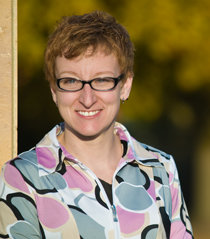
Fear, misconceptions, misinformation and stereotypical assumptions are all part of why sexual assault and relationship violence are not often talked about as LGBTQkknd issues. However, a refusal to be open about sexual assault and relationship violence within the queer and transgender community can put us further at risk.
According to a document provided by the Michigan State University Safe Place, research shows that the prevalence of intimate partner violence occurs at similar rates among the LGBT community as in heterosexual relationships. Although the rates of violence are similar, LGBTQkknd folks are often less likely to report instances of intimate partner violence than heterosexual folks. Deanna Hurlbert, Director of the MSU LBGT Resource Center, said some of the reasons for this could include: feeling like intervention services are not intended for the LGBTQkknd community, a lack of confidence that the police will treat them without bias if they make a report, and seeking help can be equated to “coming out” to the person/entity to whom they are reporting the incident.
Those same factors can also contribute to why our community fails to focus on these issues.
In our society, assault and violence are often positioned as women’s issues, where (cis) men are perpetrators and (cis) women are victims. Adding men, same-sex couples, and transgender folks to the equation complicates the discussion. “There’s a dirty laundry element to it, too,” said Hurlbert. “We don’t want to make the queer community look any more pathological than it’s already wrongly presumed to be.” As a result, queer and transgender survivors are discouraged from speaking about their experiences and reporting incidents to service or protection agencies.
Transgender individuals experience additional barriers to reporting sexual assault and relationship violence. Due to bias, discrimination, and a lack of training, reporting to the police can increase risk of harm by being mishandled or experiencing additional violence within the system. In short, reporting can make matters a lot worse.
So what do we do? We need to demand that service providers train their first responders to appropriately respond to LGBTQkknd populations and have a working understanding of the multiple and intersecting identities therein. The good news is that the staff of the MSU Safe Place (a community relationship violence shelter) and the MSU Sexual Assault Program (including their community crisis hotline respondents) are trained to support LGBTQkknd survivors. And more and more police departments are similarly training their officers and special victims units.
But we also need to be realistic about the prevalence of sexual assault and relationship violence that befalls our community. We cannot ignore or further silence the experiences of survivors within our community. Most importantly, we need to support survivors. All survivors.
If you or someone you know is experiencing relationship violence or stalking, call the MSU Safe Place at 517-355-1100 or visit their website at safeplace.msu.edu. If you or someone you know requires sexual assault crisis intervention, call the Sexual Assault Program 24-hour crisis line at 517-372-6666.
Help is out there.
Support City Pulse - Donate Today!
Comments
No comments on this item Please log in to comment by clicking here